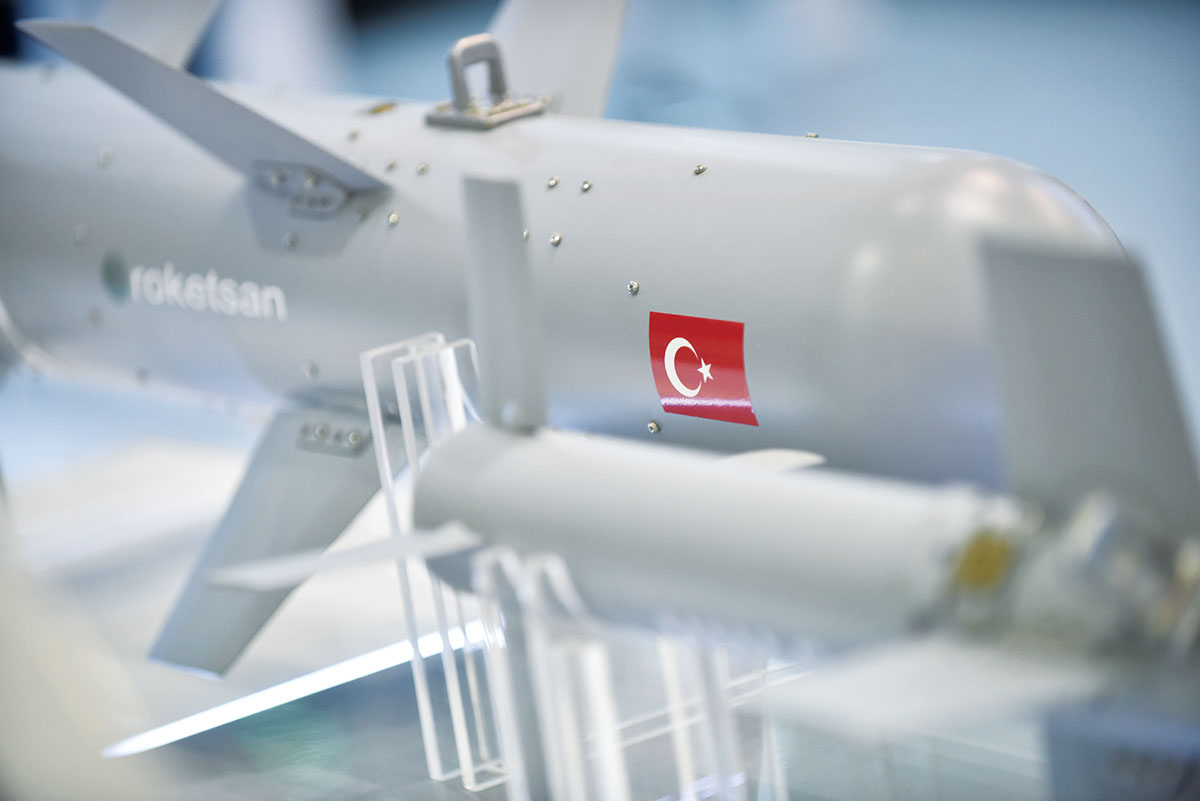Turkey and Ukraine started an eighth round of talks over a free trade deal this week, Deputy Minister of Economic Development and Trade Natalia Mykolska announced on Oct. 25.
And while removing barriers for trade is still a work in progress — actually a work in progress since 2011 — the two countries have made concrete progress in enhancing mutually beneficial defense cooperation.
“That is what a strategic relationship is about,” Turkish Ambassador to Ukraine Yönet Can Tezel said of the recent defense agreements signed between the two nations during an Oct. 9 meeting of the two heads of state in Kyiv.
Tezel said the deals are tangible signs that Turkish President Recep Tayyip Erdoğan and Ukrainian President Petro Poroshenko and their governments trust each other.
Turkey is the sixth largest arms importer in the world, according to the Stockholm International Peace Research Institute.
In 2015, Erdoğan called for the independence of its defense industry from foreign imports. But Turkey’s ambitions spread beyond self-sufficiency. It wants to move up the rankings of global arms exporters — now it’s 16th — and has set the goal of boosting its defense exports to $10 billion by 2021, as per the international strategy released by the Undersecretariat of Defense Industries.
In 2016, Turkey sold defense and aerospace products abroad for $1.68 billion, but the capacity of the industry is larger, the government believes. According to the Defense and Aviation Industry Manufacturers Association, arms sales on the Turkish domestic market rose by 21.6 percent and amounted to nearly $6 billion.
Today the Turkish defense and aerospace industry has a portfolio of more than 400 projects worth $35 billion, Hürriyet, a Turkish newspaper, reported in March, quoting head of the Undersecretariat of Defense Industries İsmail Demir. Among them there are many that Turkey is producing for the first time in a bid to create its national brands of tanks, corvettes, helicopters, airplanes, missiles, rifles, and other military equipment.
No wonder that Demir accompanied Erdoğan on a dozen of his foreign visits, including the most recent one to Ukraine on Oct. 9.
Ukraine is a good partner for joint production and a potential market for Turkish exports. Ukraine is facing invasion by Russia, spending a record 5 percent of its gross domestic product on security and defense, and is the world’s ninth largest arms exporter.
Erdoğan sees the potential. He brought his top defense and security officials to Kyiv: Chief of the Joint Staff of the Turkish Armed Forces General Hulusi Akar, Minister of National Defense Nurettin Canikli and Secretary General of the National Security Council Seyfullah Hacımüftüoğlu.
Following the visit, the countries’ two defense ministers signed a cooperation protocol. Moreover, Turkey’s defense manufacturer ASELSAN got a $43.6 million deal on supplying communication systems to Ukraine. Delivery will start in 2018.

Turkish defense contractor Roketsan displays models of its missiles at the international arms exhibition in Kyiv on Oct. 15. (Oleg Petrasiuk)
“The agreement with ASELSAN communications is significant,” Tezel said. “It’s for wireless military communications equipment… Ukraine has needed this equipment for a few years now. Finally, after trials and trials, Ukraine found that ASELSAN is the best option. We are happy about this.”
ASELSAN was among seven Turkish defense manufacturers that displayed their innovations at the international arms exhibition in Kyiv in October, making Turkey the second largest foreign delegation after Poland.
For Ukraine, which aspires to join Turkey as a member of the 29-nation NATO military alliance, Turkey is an attractive partner too.
“One of our priority goals is transition to international standards in arms and military equipment manufacturing,” Ukraine’s state defense manufacturer Ukroboronprom stated in a written reply to the Kyiv Post. “In this sense, Turkey’s membership of NATO is an important factor for deepening the various directions of our military-technical cooperation.”
The IDEF‑2017 arms exhibition in Istanbul in May became a breakthrough for Ukroboronprom. Not only did it present its latest developments, but it also reached agreements with the Turkish Undersecretariat for Defense Industries.
Turkish air defence manufacturer HAVELSAN and Ukroboronprom signed a memorandum on joint radar production. TUSAŞ Motor Sanayii agreed with Ivchenko-Progress ZMKB, a state design bureau for aircraft engines in Zaporizhzhya, to produce turboject aircraft engines. and Ukrainian air missile manufacturer Artem signed a cooperation agreement on the ammunition production with MKEK, the Turkish Mechanical and Chemical Industry Company.
